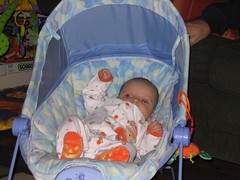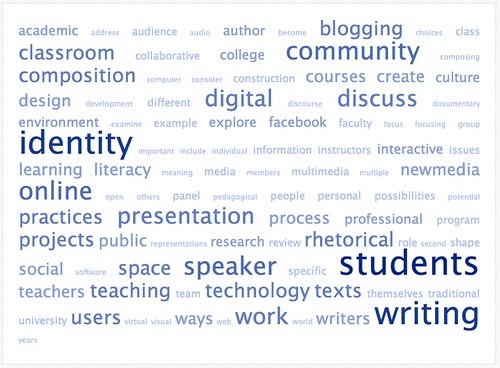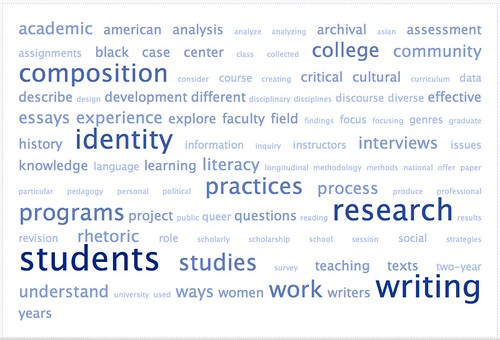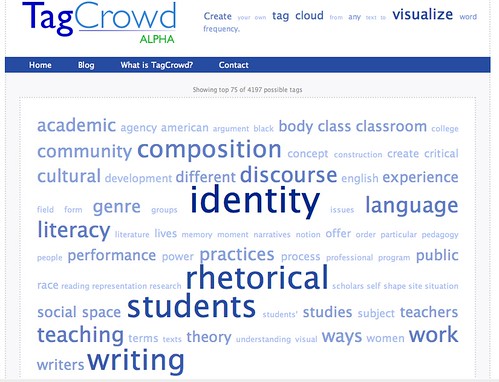 On Friday, after going to see an 8 am panel, my friend Lorie and I went to the SF MOMA, where I saw the 2004 Exhibition of SECA award winners. One in particular caught my eye, a guy named Simon Evans. His work is a funky combination of a Dave Eggers sensibility and perhaps an aesthetic close to New Yorker cartoonist Roz Chast, with a dash of Borges' Chinese encyclopedia thrown in:
On Friday, after going to see an 8 am panel, my friend Lorie and I went to the SF MOMA, where I saw the 2004 Exhibition of SECA award winners. One in particular caught my eye, a guy named Simon Evans. His work is a funky combination of a Dave Eggers sensibility and perhaps an aesthetic close to New Yorker cartoonist Roz Chast, with a dash of Borges' Chinese encyclopedia thrown in:
Hard to read, I know, but I haven't found too many good reproductions, and his work is new enough that I couldn't find prints. There are a couple of good pages of his work at the gallery where he's currently showing. His work was the highlight of my MOMA trip this time out. While I appreciated a lot of the other work, Evans clicked for me.
You remember Borges' encyclopedia, right? Foucault cites it in The Order of Things. In "The Analytical Language of John Wilkins," Borges describes 'a certain Chinese Encyclopedia,' the Celestial Emporium of Benevolent Knowledge, that divides animals into the following categories:
those that belong to the Emperor,
embalmed ones,
those that are trained,
suckling pigs,
mermaids,
fabulous ones,
stray dogs,
those included in the present classification,
those that tremble as if they were mad,
innumerable ones,
those drawn with a very fine camelhair brush,
others,
those that have just broken a flower vase, and
those that from a long way off look like flies.
For those of us unfortunate enough not to have a Celestial Emporium handy, I offer to you the new and improved Call for Proposals for next year's CCCC. Once upon a time, back in the day, we simply chose an "area cluster," one of 11 areas which would determine where (and by whom) our proposals would be considered.
Then they added the "level emphasis" which designates 2-year college, 4-year college, or cross-insitutional. Insofar as CCCC attempts to encourage participation from faculty at 2-year institutions, this seems okay to me.
Last year, they added the "interest emphasis," which named race/ethnicity, gender, class, sexuality, and disability as interests from which we were to choose one. This year, there were supposedly 209 panels with an interest emphasis of race/ethnicity, a fact which (I'm sure) had nothing to do with the explicit mention of race/ethnicity in the call for proposals.
This year, another category, "major focus," appears on the proposal form, which allows us, if applicable, to check basic writing, two-year college, first year composition, WAC/WID, feminist studies, or cultural studies.
Umm...what?!?!
In advance of the 2007 Call for Proposals, I'd like to suggest that, in addition to area cluster, level emphasis, interest emphasis, and major focus, another category be added called Evidentiary Inclinations, from which proposers can, if applicable, select one of the following: careful observation, dictionary definitions, thinkers whose last names begin with vowels, elegies, and, as a nod to Borges, those included in the present classification.
After all, it couldn't get much worse.
Perhaps CCCC is indeed trying to do something with this data. What they are currently accomplishing, however, is exactly the opposite. By proliferating these categories on the call itself (instead of asking for, say, 5 minutes of our time when our proposals are accepted), they are influencing the proposal process itself, in a bad way. Last year, it was pretty obvious that people felt that naming race/ethnicity as their emphasis gave them a better chance of acceptance, and unfortunately, the numbers bore that out. We don't need a more complicated formula for determining acceptance rates, and if the data isn't being used that way, then there needs to be some type of explanation on the form itself of how exactly it's being used.
And it needs to be a helluva lot more nuanced than "check one." Panels are comprised of multiple papers--is an emphasis in one paper enough to qualify the whole panel? If so, then my panel was "about" gender this time out. Which "major focus" is appropriate for a paper on using WAC strategies to help basic writers enter FYC classes sooner? And so on and so on.
I realize that CCCC is us, and I realize that I run the risk of hurting some feelings when I say this, but this trend, towards increasingly arbitrary and unclear categories, is downright stupid. If we want actual data about the conference and the presentations, then make a brief survey part of the process by which we accept our invitations. And design it better than a bunch of "check one if applicable" lines that don't come anywhere close to actually naming the range of areas covered in CCCC presentations. The implication right now is that these are "favored topics," and if they're not, it needs to say so. If they are, then it may be time for me to spend my March next year doing something else. Because my work doesn't fit comfortably (or even roughly) into any one of them.
Oh, and if we hurry, we might be able to book Simon Evans to do the cover for the 2007 program.
That is all.
 On Friday, after going to see an 8 am panel, my friend Lorie and I went to the SF MOMA, where I saw the 2004 Exhibition of SECA award winners. One in particular caught my eye, a guy named Simon Evans. His work is a funky combination of a Dave Eggers sensibility and perhaps an aesthetic close to New Yorker cartoonist Roz Chast, with a dash of Borges' Chinese encyclopedia thrown in:
On Friday, after going to see an 8 am panel, my friend Lorie and I went to the SF MOMA, where I saw the 2004 Exhibition of SECA award winners. One in particular caught my eye, a guy named Simon Evans. His work is a funky combination of a Dave Eggers sensibility and perhaps an aesthetic close to New Yorker cartoonist Roz Chast, with a dash of Borges' Chinese encyclopedia thrown in: 







